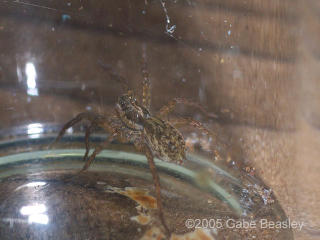
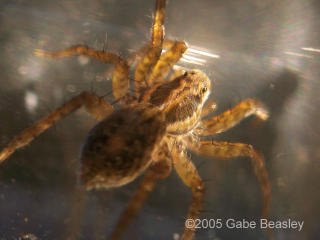
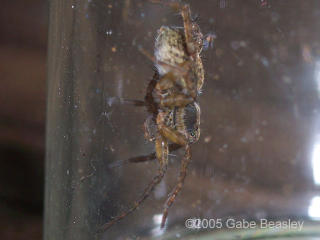
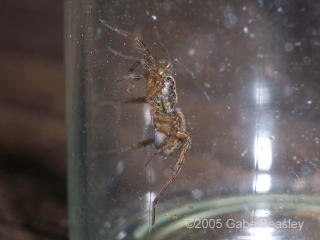
I spent about an hour finding out how to catch this spider and photograph it. If it is not the fastest species of spider in the world it's got to be close. It runs from anything that moves-and it does not stop until it's ten feet away hiding under a leaf. They are nearly impossible to photograph without capture. I tried, and tried--and tried more--but all I got was ground and out of focus junk. I realized this was one time I had to capture it to photograph it. As you can see in some of these pictures they have fairly large eyes pointed in all directions. This is a female, someday she will likely carry that trademark egg sack behind her as wolf spiders do. TO SEE
THE EYES be sure to CLICK to ENLARGE some of these pictures!
Then even carry there young! That season is not here yet though. She is not fully grown and was found running away alone like they all do. They hit speeds close to that of the tiger beetle (the fastest land animal in per portion to it's body size) and thus cannot see while they are running so that have to stop every foot or a half to look for you again and just as you see them there off again. They go to great lengths not to get stepped on! That is probubly the main reason why wolf spiders, and harvestmen-run so often and so hard. Do to the sun being bright out this afternoon, I used the last rays to use my super macro lens. The last one shows how big this spider really is. On the surface it resembles in some markings the hobo-spider–but just a quick look at the eyes gives them away-there are not releated. They are proven-harmless wolf spiders. These are all of the same spider just three different lenses were used for the shots.
I used my regular standard macro most my pictures are done with (150mm appox.) and a
extremely big (95mm approx) for the high stuff. The high-macro shots in setting sunlight I had to use as a light sorce for that lens.
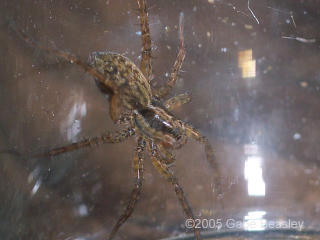


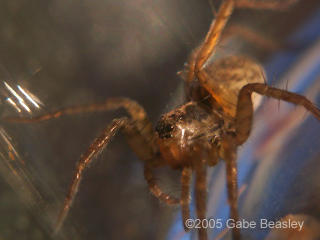
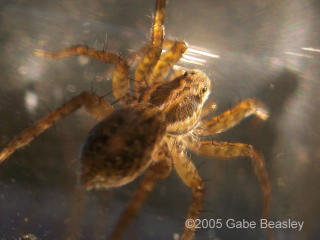
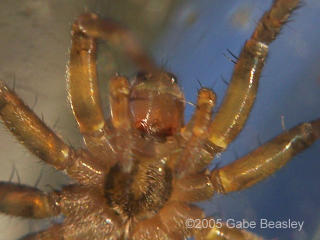
I put in a lot of pictures of this one to give a full description as each picture kind of gave one
peace of a puzzle. I gotta clean my spider jar I carry with me!
The thing that shocks me about this spider the most is population. There must literary be
5 per every square foot in my back yard. Yes--it's that dense. Most likely they eat ants
but clearly they may be tolerant of each other. If they were not you would
not see all ages, and sizes in such huge numbers--at least I don't know how you would. They
see well and must bump into each other all the time. I want to show people that all spiders are not cannibalistic monsters. The wolf spider is probably one of the best examples from there strange parental care to these population levels. Although they are not technically social spiders they, like all spiders can "taste-smell" by touch and tell if they are near each other. From there they simply chose not to attack or ignore, or like the sack spider avoid a fight by jumping away from each other. There are all kinds of strange things about wolf spiders that make them interesting.
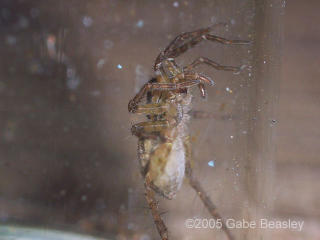
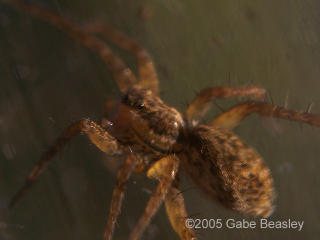
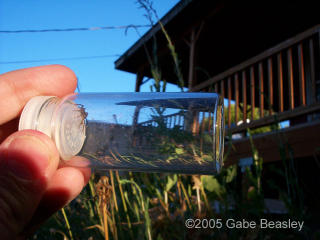
No comments:
Post a Comment